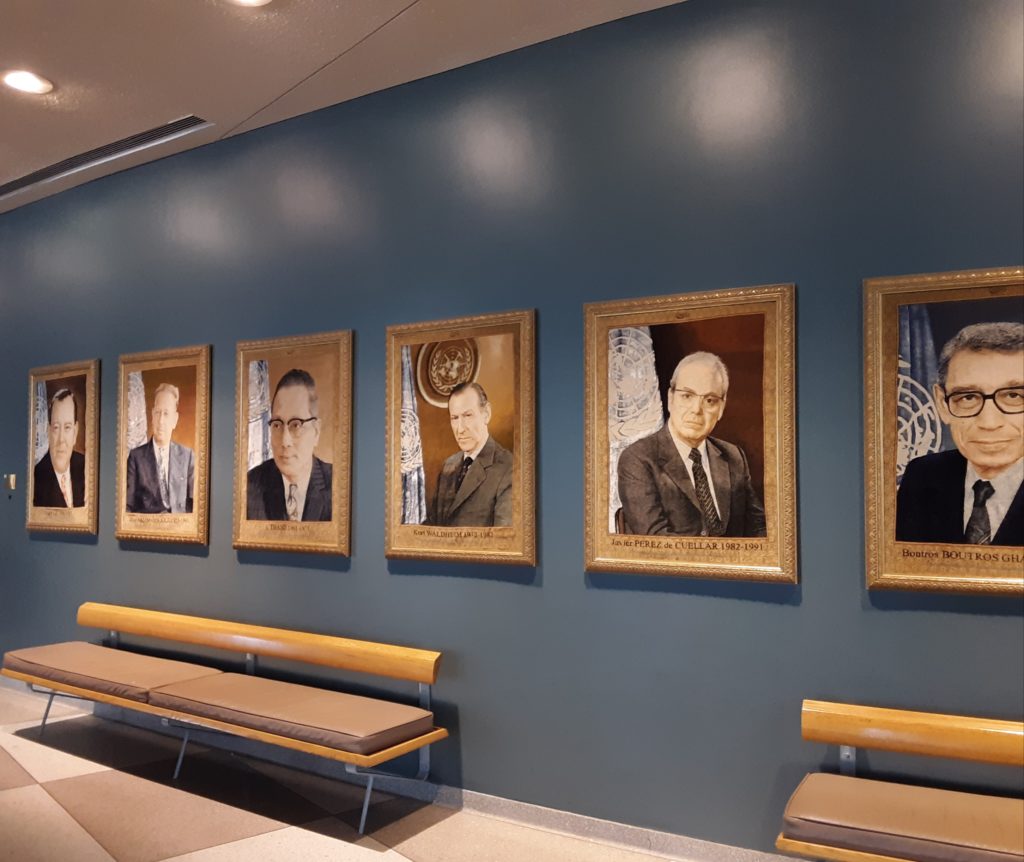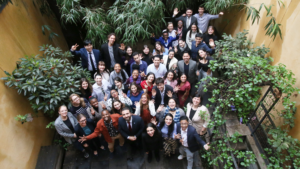
For over a hundred years, Karl Marx’s ideas have fueled controversy, conflict, and economic upheaval throughout the world. The 19th-century thinker believed that the strife of history is a result of the conflict between economic classes, and is well-known for proposing a Communist economic system in order to eliminate poverty and build peace.
In particular, Marxist theory aims to reduce suffering and conflict by eliminating the class system. Marx explains the problems of history in economic terms: he theorized that for most of human history, people have been divided between a wealthy bourgeois class and a poor proletariat class, with the bourgeois exploiting and oppressing the proletariat laborers. Marx insisted that human conflict was caused by this oppression. “Communism is the riddle of history solved,” he wrote, “and it knows itself to be the solution.”
Because Marx’s theory has had a profound impact on the modern world, and continues to play a role – for instance in my home country of Canada, reshaping itself into“Marxist feminism,” a school of thought which is popular at universities and continues to shape Canadian society – it is important for us as WYA members to think critically about whether Marxism supports the dignity of the human person and how we should respond to it.
First, we should recognize our common ground. Marx’s theory recognizes that profound inequity is contrary to the good of the human person, we need to develop societies and reduce poverty. WYA, too, affirms the need to develop societies in order to give every person a chance to reach their potential. However, when it comes to the crucial questions of how and why to develop society, WYA and Marxist thought diverge.
In his quest to destroy poverty, Marx focuses on material problems. In a way, Marx thinks too small: instead of creating vibrant societies by working in all dimensions of human life, he limits social development to mere economic restructuring. How does this reflect his understanding of the human person? Marx answers this himself when he writes, “society does not consist of individuals, but the relations within which these individuals stand.” For Marx, the person himself does not matter – only the economic relationships between people do. This is why his vision for society does not have anything to do with empowering the person, and only refers to the economic structures within which people live.
In contrast, WYA’s charter explains that authentic social development happens when human persons are developed in all their dimensions. WYA’s famous Pink Flyer, the earliest expression of WYA’s ideas, proclaims, “The development of the whole person includes the moral, spiritual, emotional, intellectual as well as the physical dimension.” Why does the Certified Training Program teach us about beauty? About solidarity and family? About music, art, and other expressions of human culture? About freedom, conscience, ideas, and moral courage? Because WYA is aware of the deep truth that human life is not defined by economics – it is defined by the mystery and dignity of the person, whose capacity for transcendence, hope, and solidarity must always be placed at the centre of social change.
If Marx’s view of the human person is fundamentally incomplete, then, it follows that the culture created by his ideas will be profoundly antagonistic to the objective truth of the human person. My own favourite reading from the CTP comes from within a culture paralyzed by the grip of Communism: Vaclav Havel’s “The Power of the Powerless.” Written to reignite the flame of human resistance against a totalitarian Marxist regime, this essay throws the contrast between authentic human flourishing and the society created a totalitarian systematization of Marxist thought into sharp relief. “Between the aims of the post-totalitarian system and the aims of life there is a yawning abyss: while life moves towards plurality, diversity, independent self-constitution and organization, in short towards the fulfillment of its own freedom, the post-totalitarian system demands conformity, uniformity, and discipline … The system serves people only to the extent necessary to ensure that people will serve it.” Havel’s analysis shows us that a society that is built on a false anthropology will be malformed, unable to allow authentic human flourishing and fulfillment, as was the case in his Marxist totalitarian state.
Although Marx’s desire to eliminate poverty was laudable, he misunderstood the nature of the very persons who he wanted to free from oppressive poverty, and placed the system, not the individual, at the centre of his solution. As defenders of human dignity, we have a responsibility to develop our societies so that each person has the greatest opportunity to flourish and realize his or her potential; however, our solutions need to be person-centred or they will not be real solutions at all.
[su_divider top=”no” size=”1″]
By Kathleen Mawhinney, a 2018 Batch 3 Intern from the North America office







